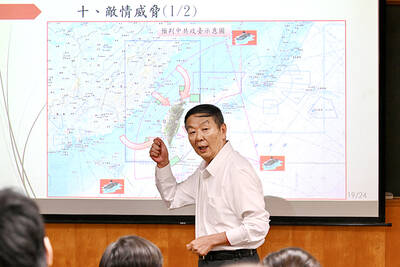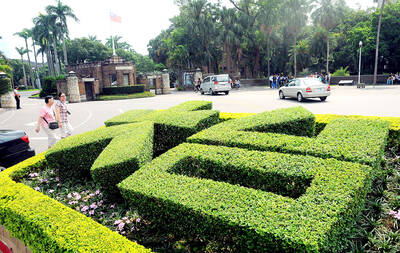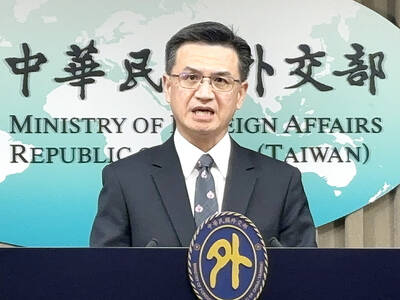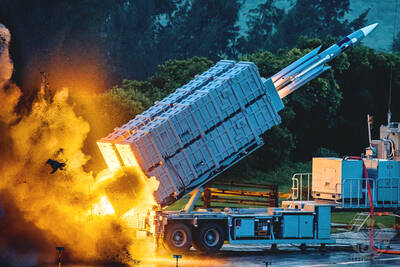UN Secretary-General Antonio Guterres on Friday said that warring parties in 11 countries have responded positively to his appeal for a global ceasefire to tackle the COVID-19 pandemic, but turning words into peace is enormously difficult, and fighting has escalated in major conflicts including Yemen, Libya and Afghanistan.
Guterres called on all governments, groups and people with influence “to urge and pressure combatants around the world to put down their arms,” saying the need is urgent because “the COVID-19 storm” is now coming to all conflict areas.
His appeal 10 days ago was rooted in the recognition that “there should be only one fight in our world today: our shared battle against COVID-19,” Guterres told a briefing at UN headquarters in New York.
The appeal is “resonating” around the world, he said, citing a growing number of endorsements for the ceasefire from 70 countries, civil society, religious leaders including Pope Francis and more than 1 million people in an online petition organized by Avaaz, he said.
Parties to conflicts in Cameroon, the Central African Republic, Colombia, Libya, Myanmar, the Philippines, South Sudan, Sudan, Syria, Ukraine and Yemen have also expressed their acceptance, Guterres said.
However, “there are enormous difficulties to implementation, as conflicts have festered for years, distrust is deep, with many spoilers and many suspicions,” he said.
He also warned that “terrorist or extremist groups may take profit from the uncertainty created by the spread of the pandemic.”
“In many of the most critical situations, we have seen no let-up in fighting and some conflicts have even intensified,” he said.
In Yemen, he said that despite support for a ceasefire by the government, Houthi rebels and other parties, “the conflict has spiked.”
In Libya, the warring parties welcomed calls to stop the fighting, “yet clashes have escalated drastically on all front lines, obstructing efforts to effectively respond to COVID-19,” he said.
In Afghanistan, where fighting increased, Guterres said the time has come for the government and the Taliban, who are working on a prisoner exchange, to cease hostilities “as COVID-19 looms over the country.”
In Syria, he said a ceasefire in the last rebel stronghold in northwest Idlib that was negotiated by Russia and Turkey is holding, but a permanent nationwide ceasefire is essential to tackle COVID-19 and help the millions suffering from the conflict.
“There is a chance for peace, but we are far from there,” Guterres said. “We need robust diplomatic efforts to meet these challenges. To silence the guns, we must raise the voices for peace.”

RETHINK? The defense ministry and Navy Command Headquarters could take over the indigenous submarine project and change its production timeline, a source said Admiral Huang Shu-kuang’s (黃曙光) resignation as head of the Indigenous Submarine Program and as a member of the National Security Council could affect the production of submarines, a source said yesterday. Huang in a statement last night said he had decided to resign due to national security concerns while expressing the hope that it would put a stop to political wrangling that only undermines the advancement of the nation’s defense capabilities. Taiwan People’s Party Legislator Vivian Huang (黃珊珊) yesterday said that the admiral, her older brother, felt it was time for him to step down and that he had completed what he

Taiwan has experienced its most significant improvement in the QS World University Rankings by Subject, data provided on Sunday by international higher education analyst Quacquarelli Symonds (QS) showed. Compared with last year’s edition of the rankings, which measure academic excellence and influence, Taiwanese universities made great improvements in the H Index metric, which evaluates research productivity and its impact, with a notable 30 percent increase overall, QS said. Taiwanese universities also made notable progress in the Citations per Paper metric, which measures the impact of research, achieving a 13 percent increase. Taiwanese universities gained 10 percent in Academic Reputation, but declined 18 percent

BULLY TACTICS: Beijing has continued its incursions into Taiwan’s airspace even as Xi Jinping talked about Taiwan being part of the Chinese family and nation China should stop its coercion of Taiwan and respect mainstream public opinion in Taiwan about sovereignty if its expression of goodwill is genuine, the Ministry of Foreign Affairs (MOFA) said yesterday. Ministry spokesman Jeff Liu (劉永健) made the comment in response to media queries about a meeting between former president Ma Ying-jeou (馬英九) and Chinese President Xi Jinping (習近平) the previous day. Ma voiced support for the so-called “1992 consensus,” while Xi said that although the two sides of the Taiwan Strait have “different systems,” this does not change the fact that they are “part of the same country,” and that “external

UNDER DISCUSSION: The combatant command would integrate fast attack boat and anti-ship missile groups to defend waters closest to the coastline, a source said The military could establish a new combatant command as early as 2026, which would be tasked with defending Taiwan’s territorial waters 24 nautical miles (44.4km) from the nation’s coastline, a source familiar with the matter said yesterday. The new command, which would fall under the Naval Command Headquarters, would be led by a vice admiral and integrate existing fast attack boat and anti-ship missile groups, along with the Naval Maritime Surveillance and Reconnaissance Command, said the source, who asked to remain anonymous. It could be launched by 2026, but details are being discussed and no final timetable has been announced, the source